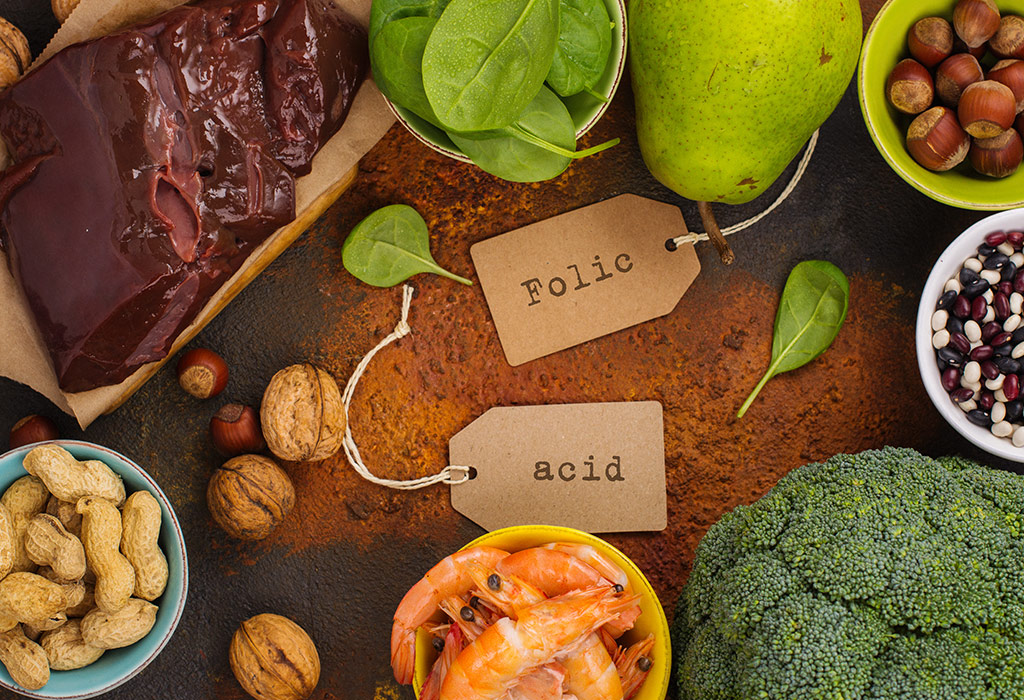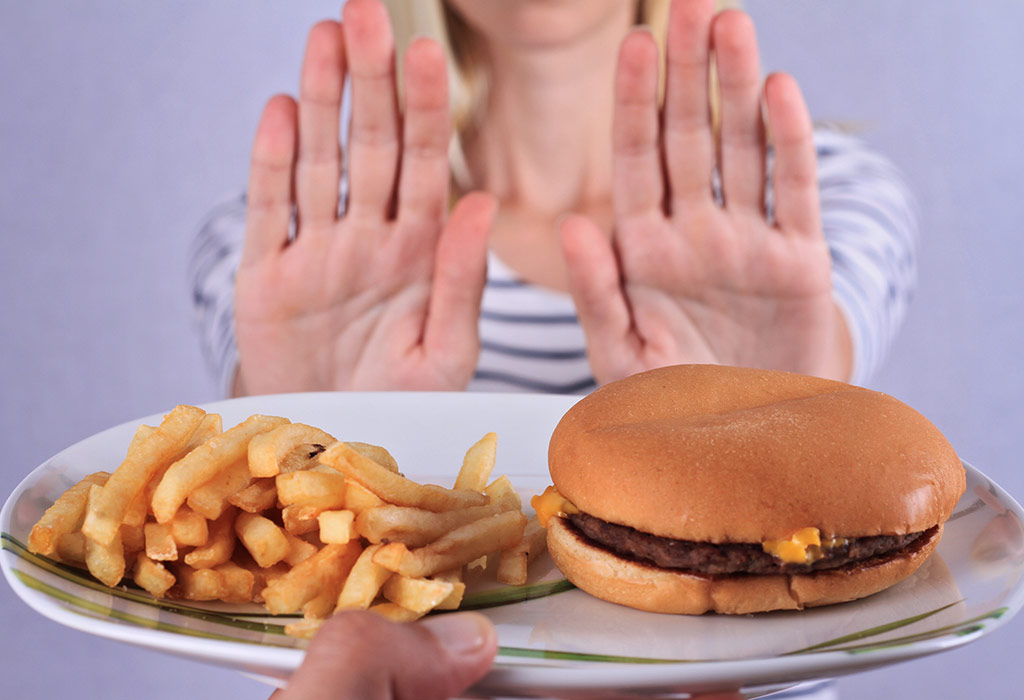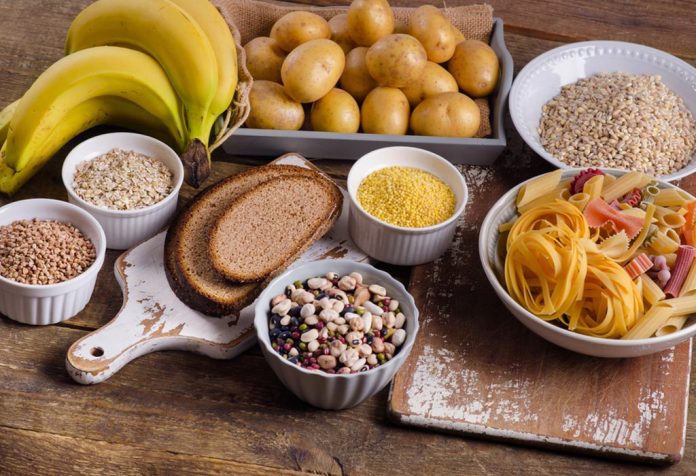In this Article
The third trimester, the last leg of your pregnancy, you are slowly inching to that most awaited day. Your body and your baby are going through tremendous changes. You will start to look big, and you will be tempted to go on a diet to temper your weight gain. Rather than diet, try and structure your diet in a way that will work around the needs of your nutrition at this stage and also keep a check on your weight. Your stomach with rumble more than often as your baby is now preparing for its life once it is outside. Health experts recommend that at least an additional 450 calories to ensure that your baby gains from nutrition needed at this stage. So, the big question is, what should you eat to strike this balance between nutrition and weight control? There are plenty of options. Read on to find out.
What Foods to Include in Seven Month Pregnancy Diet?
A healthy third trimester diet during pregnancy has many elements. Your food plan need not be dull but must include all the nutrients. The key factor is to eat in moderation! Avoid all temptations to overeat especially because you will feel severe hunger pangs during this period. Learn more about what foods to eat during the 7th month of pregnancy.
- Iron & Protein Rich Diet: An extra dose of iron is essential to avoid anaemia, haemorrhage during delivery or even premature delivery. You would need approximately 27 mg of iron every day. Dark green vegetables like spinach, turnip leaves, dried fruits like raisins and apricots, pumpkin and sesame seeds, soya beans, red meat and poultry are all iron rich foods that you can include in your diet. Protein is also important for healthy growth of your baby. The amino acids present in protein-rich foods like eggs, meat, lentils, chickpeas, pulses and dairy products will provide you with the recommended 75-100 gms of protein a day.
- Calcium-rich Diet: Intake of calcium during pregnancy in the 3rd trimester is considered very crucial. Calcium in your diet aids in the healthy development of your baby’s skeletal system and a robust bone structure. You must aim at a 1000 gm intake of calcium every day through your diet. All dairy products like milk, cheese, laban and yoghurt are rich in calcium.
- Magnesium-rich Diet: For all the calcium you devour, you would need a proportionate amount of magnesium for your body to assimilate it. Magnesium alleviates leg cramps, relaxes muscles and also prevents premature delivery. For every 1000 gm of calcium you devour, you need an intake of 400mg of magnesium. Black beans, oat bran, barley, artichoke, almonds and pumpkin seeds are rich sources of magnesium.
- DHA enriched Diet: A fatty acid, DHA is essential if you want a kid with brains and brawns. A daily intake of 200 mg is recommended for the development of the baby’s brain. Fish oil, fatty fish like tuna, walnuts and flax seeds are all loaded with DHA.
- Folic Acid: Folic acids reduce the risk of any neural tube defects and aid in the development of a healthy neural system. Eat at least 600mg -800mg of folic acid rich food in a day. Supplement your diet with dark leafy vegetables, oranges, oatmeal, whole grain bread and fortified cereals to get the recommended dose.

- Fibre rich Diet: A fibre rich diet helps to clean the bile and prevent constipation. The water in your digestive tract is absorbed by your fibre intake so make sure you drink lots of water. Constipation is common in the third trimester so include, fresh fruits and vegetables, legumes and whole grains to your diet.
- Vitamin C: Increasing your intake of Vitamin C will help in the proper absorption of iron-rich. Citrus fruits like lemons, oranges and melons, green pepper and broccoli are rich sources of Vitamin C.
Foods to Avoid in Seventh Month of Pregnancy
Just when you know what to eat, bear in mind it is equally important to know what not to eat during this stage. Heartburn, swollen feet and hands, fatigue and constipation, are some common symptoms you will experience at this stage. Certain foods will certainly aggravate these issues, and it is better to eliminate them from your diet.
- High fat and Spicy Food: Foods high in fat and spice, especially fried food will increase the discomfort of heartburn. They are difficult to digest and may hinder your sleep. Avoid fried foods in the night.
- Restrict intake of Sodium packed Foods: It is important to keep a check on your sodium intake at this stage of pregnancy. High consumption of sodium will lead to swelling and bloating. Avoid crisps, pickles, sauces, canned food and ketchup. Drink plenty of fluids and water to regulate your sodium levels in your body.
- Say no to caffeine and fizzy beverages: Try to avoid drinking coffee and tea. Restrict yourself to just one cup a day as it could lead to constipation. Fizzy drinks are loaded with artificial sugar and sweeteners and provide absolutely zero nutrition.
- Alcohol: Alcohol is definitely not recommended at any stage of your pregnancy. At this stage, it is imperative that you do not even think of consuming it as it could hinder your delivery process.
- Junk Food: You may crave for that fried chicken from KFC or the huge tempting burger at McDonald’s, but it would help if you stay away. Indulge to a restricted extent and opt for homemade snacks like sandwiches, rice cakes, hummus etc.

Diet Tips for Seven Month Pregnant Women
- Morning Diet: Include fresh fruits for your morning breakfast. Include some servings of fortified cereal for iron intake. You could even have some boiled legumes and beans for protein. Eggs, dry fruits and milk could be had on a daily basis. Eat a heavy breakfast as your body has all day to digest it.
- Afternoon Diet:Lunch should include a balanced proportion of cooked vegetables, salads, bread, grilled and/or well-cooked meats or chicken and rice. Eat more starchy foods rather than sugary foods to increase unhealthy calories.
- Dinner Diet: Keep your dinners light as you will want to avoid symptoms of heartburn and constipation. Stick to salads and fresh fruits to get a good night’s sleep.
A healthy and nutritious diet not only benefits you but your baby too. Since you are now getting bigger, it is a good idea to get some exercise to offset the calories that you intake and control weight gain. Parental yoga, swimming, walking are great options to check weight gain and will keep you strong and fit for a normal delivery.









